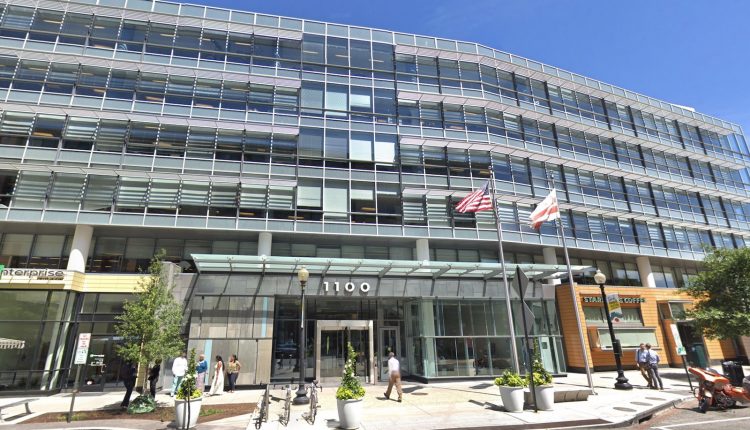
Alan Roth: Breaking up DCRA isn’t enough — we need a deputy mayor for urban planning and enforcement
DC Council Chairman Phil Mendelson recently revived his proposal to break up the Department of Consumer and Regulatory Affairs, which he first introduced more than a year ago in the previous council period. Under his bill, a new Department of Buildings would oversee construction permitting, rental housing safety, residential property maintenance and related enforcement functions. Another agency would handle consumer protection and business licensing responsibilities.

More than 25 witnesses testified at last year’s hearing on the bill. Except for Mayor Muriel Bowser’s city administrator and a small number of business organizations, the overwhelming majority of witnesses supported the legislation or proposed even more sweeping changes.
Last month, however, Mayor Bowser announced she would move supervision of DCRA from the deputy mayor for planning and economic development (DMPED) to a new (although not yet named) deputy mayor for operations and infrastructure. If this was an attempt to head off a renewed effort to restructure the District’s most dysfunctional bureaucracy, it failed miserably. One week after the mayor’s Jan. 15 announcement, Mendelson reintroduced his Department of Buildings Act with 11 co-sponsors, two more than in the previous council period.
Mendelson’s bill is a good start toward reform. But it doesn’t fully address the decades of neglect, abuse, political corruption and regulatory capture plaguing not just DCRA but the District’s entire urban planning, zoning, permitting, housing, preservation and enforcement system. And rather than solve those problems, the mayor’s new organizational change actually exacerbates them. The promises of Ernest Chrappa — interim DCRA director since mid-November and newly nominated for the permanent post — for a “digital transformation” of the agency also do not change the underlying structural problems.
Until Bowser’s recent switch-up, DMPED has been the pit boss in the DC development casino. The other dealers — DCRA and its zoning administrator; the Office of Planning and its sub-agency, the Historic Preservation Office; and the Office of Zoning — all answered to him. Most appointees to the Zoning Commission, Board of Zoning Adjustment and Historic Preservation Review Board (HPRB), although ostensibly independent, understand implicitly that their nominations or re-nominations depend on alignment with DMPED’s and the mayor’s agenda.
But while the “P” in DMPED stands for “Planning,” it’s evident from the deputy mayor’s website that planning and historic preservation are very low priorities. DMPED’s mindset is all about “ED” — “Economic Development.”
The main links on DMPED’s home page are “Real Estate Development” and “Business Development.” Huge boxes crawl across the screen calling out priority economic development programs. Programs for underserved and minority communities get a passing nod, but screaming at us silently on the site is the absence of any attention to thoughtful urban planning or livable residential neighborhoods.
No wonder that when the Office of Planning proposed a revised Comprehensive Plan, the scales tipped decidedly in favor of real estate and development interests. Likewise, skeptical or opposed neighbors or advisory neighborhood commissions rarely prevail when close calls are made by zoning or preservation officials. In a recent HPRB case, for example, a development firm and its team got most of what they wanted — even after undertaking an illegal demolition, failing to notify the public of its application, and getting caught hiding its latest drawings from the ANC. Furthermore, the community’s pleas for the imposition of tough sanctions were ignored.
Indeed, the HPRB’s process uniquely and bizarrely benefits developers over community advocates. Contrary to statutory requirements, witnesses are not placed under oath or subjected to cross-examination. An applicant and its witness, typically an architect, get the last word, and so they are free to testify falsely just prior to the board’s deliberations with no opportunity for an opposing party to be heard again.
Moving DCRA out from under the DMPED umbrella, and away from the sister agencies with which it regularly interacts, doesn’t solve these problems. It creates new ones.
Under the mayor’s new organization chart, planning, zoning and historic preservation will all remain subservient to DMPED, their economic development master. Meanwhile, in service to the new deputy mayor’s mission of “delivering high-quality core government services for existing and new residents and businesses,” we can anticipate DCRA issuing even more permits and waivers like candy to those who skirt or abuse regulations — ignoring even more 311 calls about illegal construction — and, when it does respond, compromising away even more stop-work orders in secret meetings with violators rather than imposing real sanctions.
Chairman Mendelson’s bill to break up DCRA is a good first step in reforming the existing system. But it’s time to put all these agencies, including a new Department of Buildings, under the aegis of a deputy mayor charged with making them function together as real urban planning, zoning, building, historic preservation, housing and enforcement organizations, rather than purely as arms of local real estate development interests. Those interests are entitled to a seat at the table. They’re not entitled to run the table.
Alan Roth is a former chair of Advisory Neighborhood Commission 1C (Adams Morgan). He also served from 2007 to 2016 on the DC Water and Sewer Authority Board of Directors.
About commentaries
The DC Line welcomes commentaries representing various viewpoints on local issues of concern, but the opinions expressed do not represent those of The DC Line. Submissions of up to 850 words may be sent to editor Chris Kain at chriskain@thedcline.org.


Phil Mendelson has been trying to give his associates jobs for years. Sit down Phil.